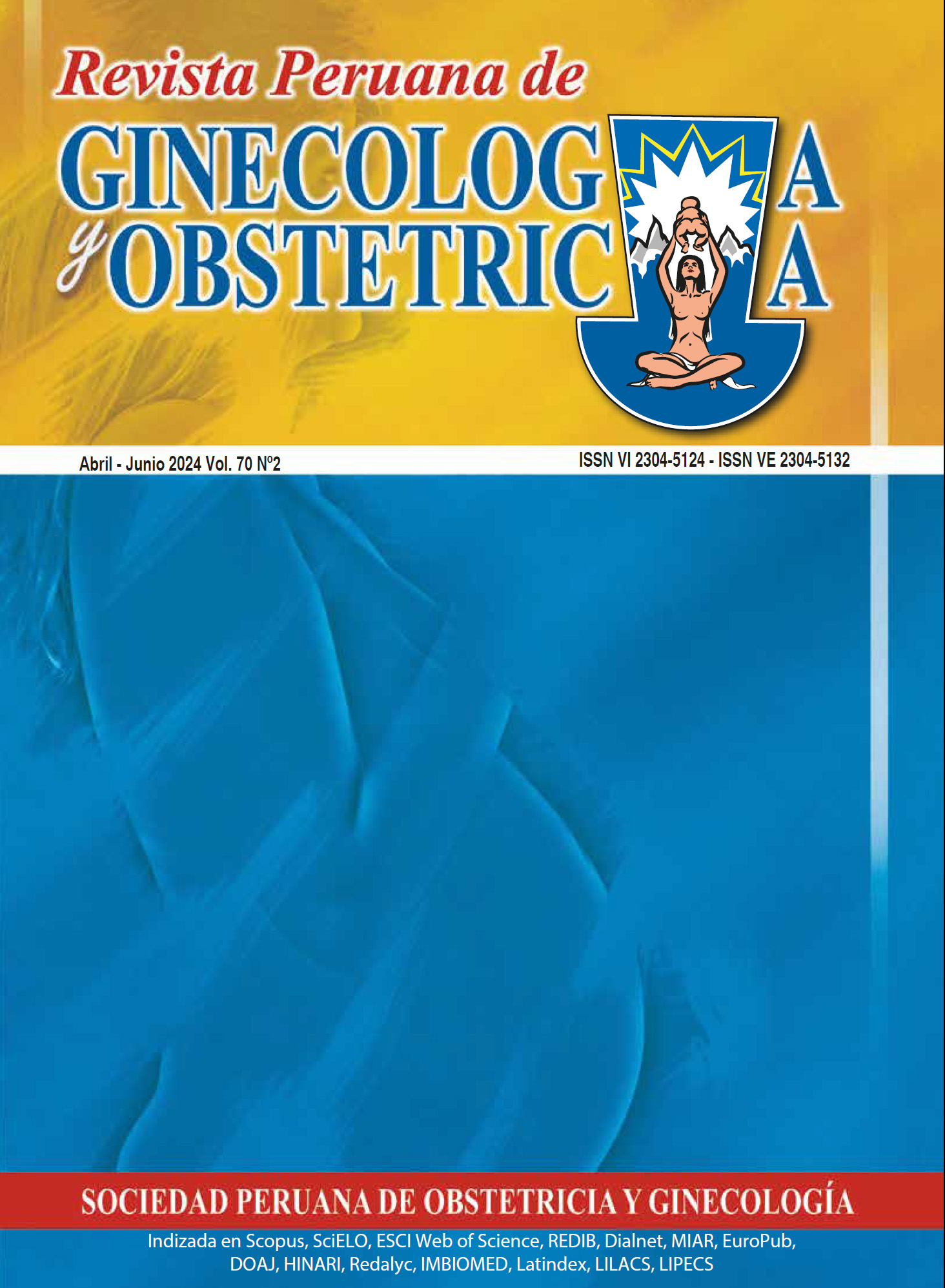Trends in maternal mortality in Peru 2019 - 2023
DOI:
https://doi.org/10.31403/rpgo.v70i2638Keywords:
Maternal mortality, Hemorrhage, COVID-19, Human rights, Quality assurance, health care, Empowerment for health, Social inequity, Reproductive rights, Sustainable Development goalsAbstract
Introduction: Maternal mortality is a highly sensitive indicator of the living conditions,
health and development of the population. Objective: To determine the situation
of maternal mortality (MM) in Peru between 2019 and 2023, visualising the figures
and interventions. Material and methods. Information was reviewed from the
Maternal Mortality Epidemiological Surveillance System of the General Directorate
of Epidemiology of the Ministry of Health, the HIS System for the registration and
coding of information, and the Demographic and Family Health Survey for the years
2021 to 2023. Results: A decrease in the number of maternal deaths (264 MM in 2023)
and in the maternal mortality ratio (51.9 per 100,000 live births in 2023) in Peru has
been found. Direct causes od death are maintained, but in different percentages by
natural regions, with hemorrhage being the leading cause of maternal mortality. The
coverage of care has increased in recent years, but it is still necessary to improve the
capacity for timely response and quality of health services. Conclusions: Although
there is evidence of a decrease in MM, it is necessary to strengthen the strategies
that have been implemented to meet the Sustainable Development Goal 3 target
on reducing global maternal mortality to 70 per 100,000 live births. The maternal
mortality reduction target set for Peru for 2030 is 41.3 per 100,000 live births.
Downloads
Downloads
Published
How to Cite
Issue
Section
License
Copyright (c) 2024 José Pacheco Romero, Lucy del Carpio Ancaya

This work is licensed under a Creative Commons Attribution 4.0 International License.
Esta revista provee acceso libre inmediato a su contenido bajo el principio de que hacer disponible gratuitamente la investigación al publico, lo cual fomenta un mayor intercambio de conocimiento global.















